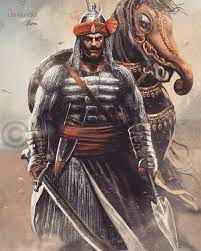About indian festival DIWALI...
Hear is the more information about Diwali...
You thinking the headline is colorful? Jus because the festival is colorful
Diwali is a Hindu festival of lights that is
celebrated annually in India and by the Indian diaspora in other countries. It
typically takes place in October or November and marks the victory of light
over darkness, good over evil, and knowledge over ignorance. During the
five-day celebration, homes are decorated with lights and clay lamps, families
exchange gifts and sweets, and firecrackers are set off. The festival is also a
time for spiritual reflection and renewal.
Diwali is considered one of the biggest and brightest festivals in India. It symbolizes the spiritual "victory of light over darkness, good over evil and knowledge over ignorance." It is also associated with the Hindu deity Lord Rama, who is believed to have returned to his kingdom after defeating the demon king Ravana. People clean and decorate their homes, wear new clothes, light diyas (clay lamps) and candles, offer prayers, and participate in feasts and other festivities.
In addition to Hinduism, Diwali is also celebrated by Jains and Sikhs. It
has become a symbol of the triumph of good over evil and hope over despair, and
is a time for families to come together and celebrate. The festival has a
strong cultural significance, and is not only observed in India, but also in
countries with a large Indian diaspora, such as Nepal, Sri Lanka, Malaysia,
Singapore, and the Caribbean..
Another important aspect of Diwali is the giving of gifts and treats to
friends, family and neighbors. People also perform acts of charity and give
donations to the less fortunate.
In terms of the legends associated with Diwali, there are several. One
popular Hindu legend tells the story of King Rama, his wife Sita, and his
brother Lakshmana, who return to their kingdom after 14 years of exile and
defeat the demon king Ravana. The people of Ayodhya, Rama's kingdom, light
diyas and celebrate his victory to welcome him back. Another legend involves
the Hindu goddess of wealth and prosperity, Lakshmi, who is said to visit homes
on Diwali night, bringing good luck and prosperity for the coming year.
In conclusion, Diwali is a celebration of light and knowledge, symbolizing
the triumph of good over evil and hope over despair. It brings families and
communities together, and is a time for reflection, renewal and happiness.
Certainly! Another important aspect of Diwali is the display of fireworks.
Firecrackers and fireworks are a big part of the celebration, symbolizing the
joy and happiness of the festival. People also participate in puja (worship)
ceremonies to offer prayers and seek blessings from the gods and goddesses.
In many parts of India, Diwali is also celebrated as the start of the Hindu
New Year. Businesses close their books and start fresh, making it a time for
new beginnings and setting goals for the year ahead. It's also a time for
renewal and forgiveness, as people put aside past conflicts and negative
feelings, and make a fresh start.
In addition, Diwali has also become a cultural phenomenon, with many
countries hosting large Diwali celebrations, even in the absence of a
significant Indian population. These events often feature traditional music,
dance, food, and decorations, and serve as a way for people of different
cultures to come together and celebrate.
these is india on day of diwali
.jpg)

.jpg)
.jpg)


Diwali is our favourite fastival
ReplyDeleteGood information
ReplyDelete